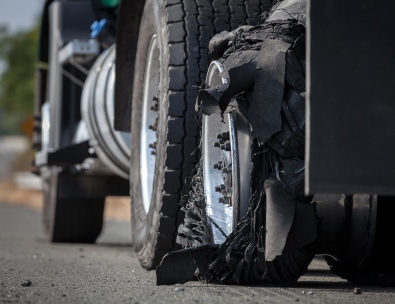Accidents resulting in personal injuries can occur unexpectedly and affect individuals from all walks of life. In Buffalo, New York, Brown Chiari LLP specializes in handling various common personal injury cases that individuals may encounter. From car accidents causing severe injuries such as whiplash, broken bones, and traumatic brain injuries to slip and fall incidents occurring in diverse settings like grocery stores or public sidewalks, the potential for harm is widespread.
Other prevalent personal injury cases in Buffalo encompass medical malpractice arising from factors like misdiagnosis, surgical errors, and medication mistakes, as well as workplace accidents occurring across various industries, leading to severe injuries or fatalities.
Recognizing the prevalent types of personal injury cases in Buffalo becomes crucial for those who have suffered injuries due to another party’s negligence. If you need help with individual injury cases in Buffalo, consult an experienced personal injury attorney from Brown Chiari LLP. Our expertise can guide you through the legal process, ensuring that you understand your rights and helping you pursue the compensation you rightfully deserve.
Motor Vehicle Accidents
Motor vehicle accidents are one of the most common types of personal injury cases in Buffalo. They can happen to anyone at any time and can result in serious injuries or even death.
Car Accidents
Car accidents can occur due to various reasons, including reckless driving, distracted driving, and drunk driving. Car accident injuries can vary from minor cuts and bruises to more severe injuries like broken bones, spinal cord injuries, and traumatic brain injuries. If you’ve been involved in a car accident, it’s essential to seek medical attention immediately and contact a personal injury attorney to help you navigate the legal process.
Truck Collisions
These accidents can be particularly devastating due to the size and weight of commercial trucks. Injuries from truck collisions can be severe and life-changing, including spinal cord injuries, traumatic brain injuries, and even death.
Motorcycle Crashes
In Buffalo, motorcycle crashes are unfortunately all too frequent, often leading to severe injuries or even loss of life. Motorcyclists are particularly vulnerable on the road, and accidents can occur for various reasons, including reckless driving, distracted driving, and poor road conditions.
Motorcycle crashes can cause a range of injuries, from minor cuts and bruises to severe injuries like broken bones, spinal cord injuries, and traumatic brain injuries.
Pedestrian and Bicycle Accidents
These accidents can occur for various reasons, including distracted driving, failure to yield, and poor road conditions. Pedestrian and bicycle accidents can cause serious injuries, such as spinal cord injuries, traumatic brain injuries, and even death.
Workplace Injuries
Personal injury cases in Buffalo often involve workplace injuries. These injuries can occur in any workplace, from construction sites to office buildings. Here are two common types of workplace injuries:
Construction Accidents
Workers are often exposed to hazardous conditions, such as falls from heights, electrocution, and being struck by heavy machinery. Injuries sustained in construction accidents can be severe and may include broken bones, head injuries, and spinal cord injuries.
Employers are required to provide a safe working environment for their employees. When they fail to do so, they can be held liable for any injuries that occur.
Workers’ Compensation Claims
Workers’ compensation is a system that provides benefits to employees who are injured on the job. Under New York law, employers are required to carry workers’ compensation insurance. If you get hurt at work, you could receive benefits like medical care, lost income, and disability payments.
Workers’ compensation claims can be complex, and it is essential to have an attorney knowledgeable about the process.
Workplace injuries can be devastating, both physically and financially. If you have been injured on the job, seeking legal advice as soon as possible is essential. An experienced personal injury attorney can help you navigate the workers’ compensation system and ensure you receive the benefits you are entitled to.
Premises Liability Cases
These cases involve injuries sustained on the property or premises of a negligent third party. To win a premises liability case, the injured party must prove that the property owner was negligent in maintaining the property and that this negligence caused the injury.
Slip and Fall Injuries
These cases involve injuries sustained when a person slips, trips, or falls due to a hazardous condition on the property. Common hazards include wet floors, uneven surfaces, and obstacles in walkways. To win a slip and fall case, the injured party must prove that the property owner knew or should have known about the hazard and failed to take reasonable steps to fix it.
Inadequate Security
These cases involve injuries sustained as a consequence of unlawful acts committed on the premises, such as assault, robbery, or rape. To win a security case, the injured party must prove that the property owner was aware or should have been aware of the risk of criminal activity on the property and did not take reasonable steps to prevent it.
Property owners must ensure that their premises are safe for visitors. If they fail to do so, they can be held liable for any injuries that result.
Medical Malpractice
Medical malpractice occurs when a healthcare provider fails to meet the expected standard of care, harming the patient. Medical malpractice cases are complicated, so it’s crucial to have a knowledgeable personal injury lawyer to assist with the legal process.
Surgical Errors
Surgical errors are a common type of medical malpractice case. Surgical errors may involve operating on the wrong body part, leaving instruments inside the patient, or damaging surrounding organs or tissues. These errors can cause serious harm to the patient and may require additional surgeries or medical treatment.
Misdiagnosis or Delayed Diagnosis
Misdiagnosis or delayed diagnosis can also lead to medical malpractice cases. If a healthcare provider fails to diagnose a condition correctly or incorrectly, the patient may not get the proper treatment. This can lead to a worsening of the patient’s condition or even death. Healthcare providers must conduct thorough exams and tests to diagnose accurately.
Gather all the necessary medical records and documents to strengthen your case in medical malpractice cases.
Product Liability
Product liability cases arise when a product is defective and causes injury or harm to a consumer. If you have been injured due to a defective product, you may have a product liability claim against the manufacturer or seller of the product.
Defective Products
A defective product is unreasonably dangerous to the consumer who uses it as intended. The defect can be in the product’s design, manufacturing, or marketing. Examples of defective products include faulty car parts, bad toys, and dangerous power tools.
In Buffalo, NY, product liability claims are often based on the legal theory of strict liability. This means that the manufacturer or seller of the product can be held liable for injuries caused by the product, even if they were not negligent in any way.
Dangerous Pharmaceuticals
Dangerous pharmaceuticals are another common type of product liability case. These cases arise when a drug manufacturer fails to warn consumers of the potential risks associated with their product. Examples of dangerous pharmaceuticals include medications that cause severe side effects or that are improperly labeled.
If a defective product or dangerous pharmaceutical has injured you, it is essential to seek legal guidance promptly.
Dog Bites and Animal Attacks
Dog bites and animal attacks are common types of personal injury cases in Buffalo. Legal cases involving dog bites can be complex and difficult to litigate. Insurance companies might claim that the owner did not know the dog was aggressive during the accident. Therefore, it is essential to document the injuries and gather evidence in a dog bite case. If possible, the victim should promptly take clear photos of visible wounds, bruises, lacerations, torn or bloody clothing, and the dog. These images prove the attack’s severity and the dog owner’s negligence. In addition to photos, collecting medical records is crucial.
Liability insurance policies are the most common way a dog bite victim receives compensation for damages. FindLaw said the average dog attack settlement in 2022 was $64,555 per claim. Homeowner and renter insurance is often used to cover a dog bite claim. However, dangerous dogs or certain breeds usually do not receive coverage.
Dog owners can take several steps to reduce the risk of liability. According to Legal Desire, properly training and socializing their dogs from a young age can reduce aggression. Owners should also supervise their dogs and keep them on a leash in public places. Additionally, posting warning signs on their property can help prevent dog bites and animal attacks.
Assault and Battery Cases
Assault and battery cases involve one person intentionally causing harm to another person. These cases can lead to not only physical injuries but also severe emotional trauma and protracted legal battles. Assault and battery are different from each other because the defendant acted deliberately. Assault refers to the threat of violence, while battery refers to actual physical contact.
Assault and battery cases are intentional torts that involve the deliberate infliction of harm on another person. Victims of assault and battery may be able to file a personal injury lawsuit to recover damages such as medical bills, lost wages, and pain and suffering. The victim must prove that the defendant’s actions breached a duty of care and caused their injuries or losses. However, the victim must also prove the element of intent or that the defendant acted deliberately.
In Buffalo, assault and battery cases can vary depending on the circumstances. For example, physical attacks, sexual assault, and verbal abuse are all different types of assault and battery cases that can occur.
If you have been a victim of assault and battery, it is essential to seek medical attention immediately. Documenting all injuries and recording any medical treatment received is also important.
Nursing Home Abuse
Nursing home abuse is a serious issue that affects many elderly residents in Buffalo. It is a form of personal injury that can cause physical, emotional, or financial harm to the victim. Common types of nursing home abuse include neglect, physical abuse, emotional abuse, and financial abuse.
- Neglect refers to the type of abuse in nursing homes where the staff fails to provide proper care to the residents. This can include failing to provide food, water, medication, or assistance with hygiene. Neglect can lead to serious health problems, such as malnutrition, dehydration, infections, and bedsores.
- Physical abuse is a form of nursing home abuse in which the staff intentionally uses physical force to harm the residents. This can include hitting, slapping, pushing, or restraining the resident. Physical abuse can cause injuries such as bruises, cuts, broken bones, and head injuries.
- Emotional abuse is a type of nursing home abuse where the staff uses verbal or nonverbal behavior to harm the residents. This can include yelling, insulting, threatening, or isolating the resident. Emotional abuse can cause psychological harm, such as depression, anxiety, and fear.
- Financial abuse in nursing homes occurs when the staff exploits the resident’s finances. This can include stealing, forging signatures, or pressuring the resident to sign over their assets. Financial abuse can cause the resident to lose their life savings, property, and other valuables.
Take nursing home abuse seriously and seek legal help if you believe your loved one was a victim.
Wrongful Death Cases
Wrongful death cases happen when someone dies because of someone else’s negligence or wrongful act. In Buffalo, NY, the personal representative of the deceased person’s estate can file a wrongful death lawsuit on behalf of the surviving family members.
There are several types of wrongful death cases, including:
Medical Malpractice
Medical malpractice occurs when a healthcare provider fails to provide the appropriate standard of care, resulting in the death of the patient. Examples of medical malpractice include misdiagnosis, surgical errors, and medication errors.
Car Accidents
Car accidents are a common cause of wrongful death. When a driver’s negligence or recklessness causes a fatal accident, the surviving family members may be able to file a wrongful death lawsuit.
Workplace Accidents
Workplace accidents can also lead to wrongful death cases. If an employer fails to provide a safe work environment or follow safety regulations, an employee dies. As a result, the surviving family members may be able to file a wrongful death lawsuit.
Product Liability
Product liability cases occur when a defective product causes a person’s death. Manufacturers are responsible for ensuring that their products are safe for consumers to use. If a defective product causes a fatal accident, the surviving family members may be able to file a wrongful death lawsuit.
Aviation Accidents
Aviation accidents can be devastating and result in serious injuries or fatalities. Accidents like these happen for many reasons, such as pilot mistakes, mechanical problems, or errors in air traffic control. Super Lawyers says several personal injury claims may apply in aviation accidents.
Passengers, crew members, and even people on the ground can be affected by aviation accidents. Several experienced aviation accident attorneys in Buffalo can help victims and their families.
If you or a loved one has been involved in an aviation accident in Buffalo, seeking legal representation as soon as possible is essential.
Boating and Watercraft Accidents
Buffalo has several waterways, including Lake Erie, the Niagara River, and the Buffalo River. As a result, boating and watercraft accidents are common in the area. These accidents can result in serious injuries, including broken bones, head injuries, and traumatic brain injuries, among others.
According to the U.S. Coast Guard, there were 4,168 boat accidents in 2019 alone, resulting in 2,559 injuries and 613 fatalities. Negligent or reckless boat operators are often the cause of these accidents, leading to unnecessary accidents in the water.
If you or a loved one has been injured in a boating or watercraft accident, seeking legal representation from an experienced personal injury lawyer is essential. The Buffalo personal injury law firm Brown Chiari LLP is proud to serve the needs of boating accident victims in Buffalo and Western New York. We offer a free consultation to discuss your case and help you understand your legal options.
Some of the most common types of injuries seen in watercraft accidents include contusions, bumps, and bruises, as well as broken bones, head injuries, and traumatic brain injuries. People are typically thrown about the boat quite seriously when the impact or collisions occur.
Environmental and Toxic Tort Cases
Environmental and toxic tort cases deal with harm to people or property from exposure to harmful environmental substances or chemicals. You can get these cases by being exposed to pollutants in the air, water, or soil or by being exposed to hazardous materials at work or home.
Some of the most common types of environmental and toxic tort cases include:
- Asbestos exposure: Asbestos is a mineral fiber widely used in construction materials until the 1970s. Asbestos exposure can cause serious health problems, including mesothelioma, lung cancer, and asbestosis.
- Lead poisoning: Lead is a toxic metal commonly used in paint, plumbing, and other products. Exposure to lead can cause developmental delays, learning disabilities, and other health problems, especially in young children.
- Pesticide exposure: Pesticides are chemicals used to kill insects, rodents, and other pests. Exposure to pesticides can cause a range of health problems, including respiratory problems, skin irritation, and neurological damage.
- Toxic waste exposure: Exposure to toxic waste can occur when hazardous materials are improperly disposed of or leaked from storage containers. This can lead to serious health problems, including cancer, congenital disabilities, and other illnesses.
In environmental and toxic tort cases, the plaintiff must prove that the defendant’s actions caused their injury or property damage. This can be challenging, as it often requires expert testimony and scientific evidence to establish a link between the defendant’s conduct and the plaintiff’s harm.
Recreational Accidents
Recreational activities such as sports, camping, and hiking are popular in Buffalo, NY. Unfortunately, these activities can also lead to personal injuries. Some of the most common types of recreational accidents include:
- Boating accidents
- Swimming pool accidents
- ATV accidents
- Snowmobiling accidents
- Hunting accidents
- Skiing and snowboarding accidents
Boating accidents can occur due to various reasons, such as operator error, speeding, and alcohol consumption. A lack of supervision, slippery surfaces, and diving accidents often cause swimming pool accidents. ATV and snowmobiling accidents can lead to severe injuries such as broken bones, head injuries, and spinal cord injuries. Hunting accidents can occur due to careless handling of firearms. Skiing and snowboarding accidents can be caused by collisions with other skiers, hitting trees or rocks, and equipment malfunction.
Contact Brown Chiari LLP Personal Injury Lawyer in Buffalo
If you have been injured in Buffalo due to someone else’s negligence, it is important to contact a personal injury lawyer as soon as possible. Brown Chiari LLP specializes in personal injury cases. Our experienced attorneys can help you with the legal process and fight for the compensation you are entitled to.
Brown Chiari LLP has a proven track record of success in handling various personal injury cases in Buffalo. Some of the most common types of personal injury cases we handle include:
- Car Accidents: If you have been injured in a car accident due to someone else’s negligence, our car accident lawyers can help you recover damages for medical bills, lost wages, and pain and suffering.
- Slip and Fall Accidents: If you have been injured due to a slip and fall accident on someone else’s property, Brown Chiari LLP can help you hold the property owner accountable for their negligence.
- Medical Malpractice: If you have been injured due to medical malpractice, our attorneys can help you recover damages for medical bills, lost wages, and pain and suffering.
- Product Liability: If you have been injured due to a defective product, our product liability lawyers can help you hold the manufacturer accountable for their negligence.
Contact Brown Chiari LLP today, and rest assured that you are in good hands. Our experienced attorneys will work tirelessly to ensure you receive the compensation you deserve. We offer a free consultation to discuss your case and answer any questions you may have.
If you have been injured in Buffalo, don’t wait to contact Brown Chiari LLP. We have the knowledge and experience to help you navigate the legal process and fight for compensation.


 When you open your drapes in the morning, you’re greeted by a fresh coat of snow on the lawn. While you might rejoice at the opportunity to spend more time with your family and celebrate important holidays during the winter, you’re likely not excited to head out on the road in your vehicle. Thankfully, familiarizing yourself with a few winter driving safety tips can ease your anxiety and help to ensure that you arrive at your destination safe and sound.
When you open your drapes in the morning, you’re greeted by a fresh coat of snow on the lawn. While you might rejoice at the opportunity to spend more time with your family and celebrate important holidays during the winter, you’re likely not excited to head out on the road in your vehicle. Thankfully, familiarizing yourself with a few winter driving safety tips can ease your anxiety and help to ensure that you arrive at your destination safe and sound. Trucking is one of the deadliest occupations. Although fatal auto accidents have decreased due to improvements in highway safety, these statistics are likely to rebound as more trucks take to the roads in New York and across the country. Today, trucks claim more than 80 percent market share in the commercial transportation industry, which includes air, sea and rail transport methods. All of this business earns trucking companies over $650 billion each year and earnings are projected to grow 20 percent in the next decade.
Trucking is one of the deadliest occupations. Although fatal auto accidents have decreased due to improvements in highway safety, these statistics are likely to rebound as more trucks take to the roads in New York and across the country. Today, trucks claim more than 80 percent market share in the commercial transportation industry, which includes air, sea and rail transport methods. All of this business earns trucking companies over $650 billion each year and earnings are projected to grow 20 percent in the next decade.